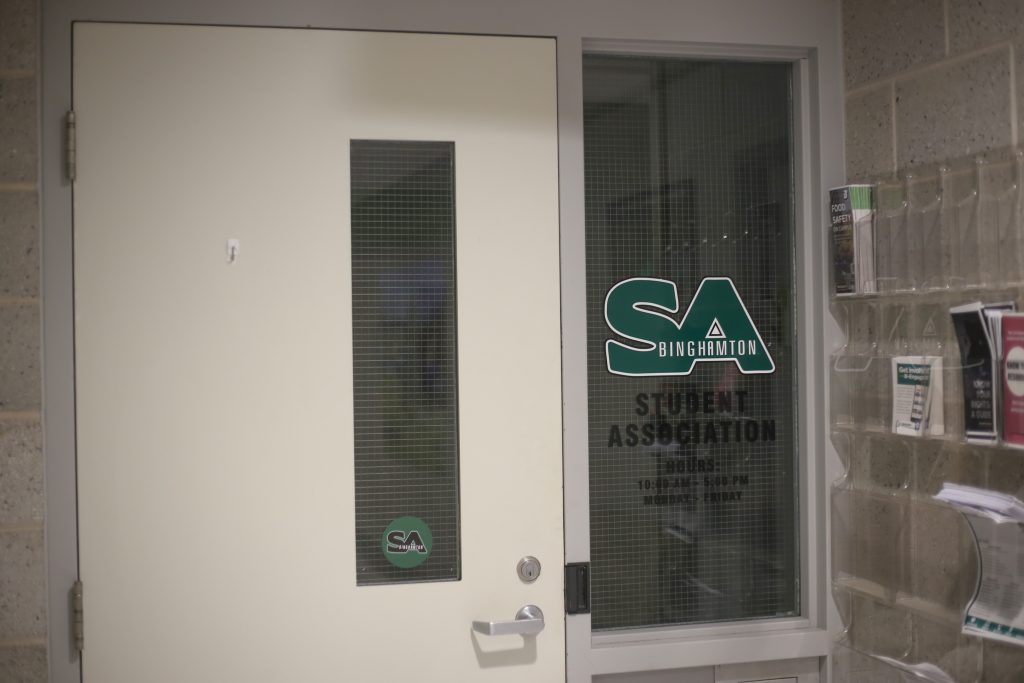Binghamton University’s Student Association (SA) has passed a new resolution in an attempt to make it easier for student-run organizations to hold on to their charters.
Previously, Policy VII of the SA’s management policies stated that any campus organization had the right to dissolve their charter, given that they submitted an official request to do so with the SA executive vice president (EVP). However, section a. of the updated Policy VII now states that this decision requires a fairly conducted and unanimous vote of membership. If there are at least three members of an organization remaining that are willing to lead it, the organization will continue under them.
Daniel Rocabado, the EVP and a senior majoring in philosophy, politics and law, said he would run into situations during the re-registration process where E-Board members would want to discontinue an organization. Consequently, there was no one to complete the re-registration process. General body members who wanted to continue the organization would have to wait until they went into the inactive period and then, as a result, lose their charter.
“I wanted to make sure that we didn’t fall into this cycle of chartered, de-chartered organizations, and we could just appoint leadership so that they can hold an interim election,” Rocabado said. “Then they can organically grow that organization again and actually find elected officials for their organization.”
A new section was added to Policy VII Section VIII, titled “Appointed Leadership.” It is made up of subsections a. and b.
Subsection a. section VIII asserts that, if an organization’s re-registration process has not yet begun by Sept. 1, the EVP can appoint an interim executive board of various interested members from the organization. A formal election must be held by the end of September, but the interim members may hold office until that point.
Luca Cassidy, the author of this legislation, chief of staff for the vice president for student success (VPSS) and a sophomore majoring in economics, expressed doubt that the bill will be used often in the future. Nonetheless, Cassidy emphasized its importance in rare situations.
“Having this change really makes having those very unique problems and situations just go much more smoothly,” Cassidy said. “Because I remember something like this recently happened, and I think it took them months to actually work it out. And so, it’s kind of a small, logistical, even clerical change, that will probably benefit a few people, but it will benefit those few people very much.”
Subsection b. of the new Section VIII states that if an organization has already submitted an Initial Re-Registration by Sept. 1, but not all officers have accepted their roles, any non-certified positions may be vacated and the EVP or organizational leadership may appoint interim officers until a formal vote or election can be held.
Rocabado addressed the impact this change will have on all SA chartered organizations on campus.
“If a new student comes on campus and says they heard about the organization last year, but nobody is assuming any position and they are not continuing this year, if you find a few friends that have the same interest, I can appoint them and then they can restart this organization,” Rocabado said. “And then they have some resources available to them, so there is still historical data that doesn’t get erased from them.”
The updated policy also aims to construct a way to temporarily appoint E-Boards when elections fail to take place in the spring.
Lauren Lovett, a sponsor of the legislation and a junior double majoring in political science and philosophy, politics and law, expressed her opinions on the policy change.
“With this update to the policy, clubs do not dissolve just because leadership ceases to exist,” Lovett wrote in an email. “Members now have the ability to keep their favorite organizations running without having to go through the process of becoming SA chartered again.”
The impact statement of Policy VII also addressed its aims to prevent abuse at the hands of E-Boards toward their general body members. It is meant to relieve certain pressures from the EVP as well, by bringing delinquent groups back into positive standing. The leadership of these clubs will instead be handed over to existing members of an organization.
Rocabado explained that the SA encourages many new organizations to join, but that retention is also important.
“When we get highly established organizations that have such a presence, they’ve been here for so long, they can help onboard these new organizations,” Rocabado said. “They pass down so much historical information that it gets lost within every year a new EVP comes. But what doesn’t leave are the organizations. There’s so much historic information. And I’m trying to keep as many organizations here on campus as possible.”



